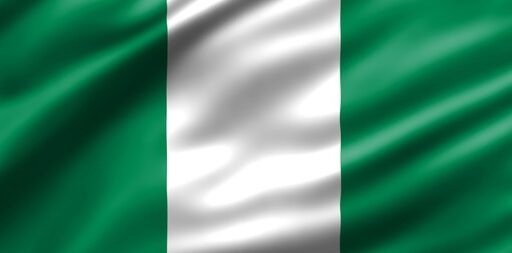Two Enugu state broadcaster journalists abducted, beaten while covering Nigerian elections
Nigerian authorities should investigate the recent attack and brief abduction of journalists Fredrick Nnaji and Chigozie Nwafor, hold those responsible to account, and ensure all journalists can cover the local elections safely, the Committee to Protect Journalists said Wednesday.
On February 23, four unidentified men attacked and briefly abducted Nnaji, a news producer and presenter with the Enugu State Broadcasting Service (ESBS), and Nwafor, an ESBS reporter, as they were driving to cover local elections in Enugu state in southeast Nigeria, according to media reports, as well as Nnaji and a source familiar with the case who requested anonymity for security reasons, who both spoke to CPJ by phone.
Nnaji, who is also the ESBS representative within the Nigeria Union of Journalists, a local press organization, told CPJ that the men beat him with their guns and struck he and Nwafor with the blunt side of their machetes, injuring Nwafor’s left wrist. Nnaji said the men ordered he and Nwafor into their vehicle where they were briefly held captive.
“Authorities in Nigeria must swiftly identify and prosecute all those responsible for the attacks on journalists Fredrick Nnaji and Chigozie Nwafor,” said Angela Quintal, CPJ’s Africa program coordinator, from New York. “This reprehensible attack speaks volumes about the grave danger that awaits journalists during Nigeria’s forthcoming general elections–a danger that Nigerian authorities have a duty to prevent.”
On February 23, Nnaji, Nwafor, and two other journalists were driving in an ESBS-branded car toward Amechi, a community in the southern area of Enugu state, to cover the local council elections, when they saw two jeeps and two Toyota Sienna vans driving toward them, according to Nnaji and the media report.
The journalists told the driver that they were suspicious of the vehicles when they were overtaken and the armed men in those vehicles began shooting into the air, Nnaji and the source familiar with the case told CPJ. The other two journalists ran out of the vehicle and managed to escape on foot.
The attackers searched Nnaji, Nwafor, and their driver, Ebuka Ogbozor, and seized their phones, Nnaji told CPJ, adding that the armed men singled him out as the leader of the group after noticing his official ESBS ID card, his Nigeria Union of Journalists ID card, and a press pass given to him by the Enugu state electoral commission to cover the elections.
Nnaji told CPJ that the attackers asked the journalists why they were covering an election in a region that had no business holding one; describing the region as “Biafra land,” a term used to describe territory that separatists have sought to declare independent from Nigeria. Then, the attackers asked them to leave their vehicle and get into one of their vans.
Inside the vehicle, the attackers hit Nnaji several times on his head and left leg with their gun, causing him to bleed, Nnaji told CPJ. The attackers then drove the journalists and their driver to a nearby polling station in the Obeagu Awkunanaw community in the Enugu South local council and asked them to exit the vehicle and lie on the ground. They shot at several people at the polling station, killing three, according to the media reports, Nnaji, and the source familiar with the case.
Nnaji said he was terrified, so he stood up and ran through a construction site and into the bushes. The attackers shot at Nnaji as he ran, but the bullets missed, the journalist told CPJ.
Nnaji told CPJ he took off his undershirt, boxers, and jeans, which were drenched in his blood, put his jeans back on to cover himself, and waited in the bush as flies hovered around him for several hours until 6 p.m., when he was sure the attackers had left the area. He then exited the bush and was helped by villagers who took him to the ESBS office in Independent Lay Out, a district in northern Enugu state.
The attackers drove Nwafor and Ogbozor to Amodu, a community within the same council, where they were freed without further injury, according to the source familiar with the case.
Later that day, Nnaji was briefly admitted to the hospital and has returned at least four times for medication and checkups, he told CPJ, adding that doctors advised he not work until at least March 17. Nwafor received stitches to her wrist after the incident, Nnaji told CPJ.
The Enugu State Police spokesperson Daniel Ndukwe told CPJ on March 10 that investigations were ongoing to identify those responsible for all attacks during the elections, including the ones involving the journalists.
Ifeanyi Ejiofor, a lawyer for the Indigenous People of Biafra (IPOB) separatist group, told CPJ by phone that the people who attacked the journalists should be considered criminals and investigated by authorities.
Ejiofor said IPOB was a nonviolent movement for self-determination and not part of the people obstructing the election. “Anybody that wished to cover the election in Nigeria should of course go ahead and do what they want to do,” he said.

